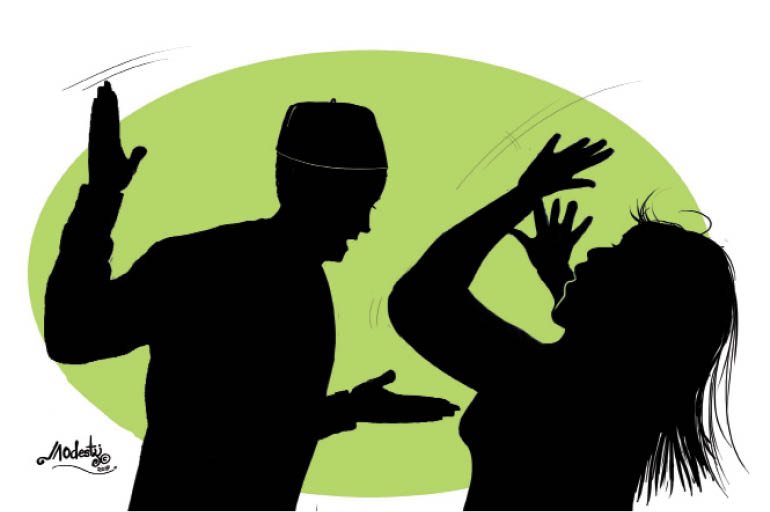#Arewametoo movement: The fight against violating northern women’s right
Violence against women occurs on every continent and in every country, making it one of the most pervasive human rights violations around the world. According to statistics, 1 in 3 women worldwide has experienced physical or sexual violence, mostly by an intimate partner. This is the reason behind the United Nations’ inclusion of elimination of […]

The fight against violating northern women’s right
Violence against women occurs on every continent and in every country, making it one of the most pervasive human rights violations around the world.
According to statistics, 1 in 3 women worldwide has experienced physical or sexual violence, mostly by an intimate partner.
This is the reason behind the United Nations’ inclusion of elimination of violence against women and girls and of all harmful practices against them as part of the 2030 Agenda for Sustainable Development, and is also included in specific targets in the newly adopted SDGs.
Just over a year ago, the #MeToo movement came into existence in the United States after several women accused Hollywood producers of sexual harassment and misconduct. Actress Alyssa Milano started using the (hashtag) #MeToo and it was tweeted over half a million times overnight with other A-list actresses speaking up about their experiences. It continued to spread virally and proved successful in raising awareness of widespread sexual assault and harassment, particularly in the workplace.
In January, the tide of the movement also started in Nigeria, Kaduna to be precise, with the hashtag #Arewametoo when Khadijah Adamu, a victim narrated in a series of tweets how she nearly died at the hands of her abusive boyfriend, Lawal Abubakar, in early 2017. She explained how he hit her repeatedly, choked and threatened her with a gun and how she would hide her scars with make-up and long sleeve clothes to conceal the wounds.
Since then, over 100 victims have come forward to speak about abuse they have experienced from their boyfriends, uncles, Arabic teachers or even family friends.
Speaking with Daily Trust, Khadijah said she met Lawal when she was 18 years old on the social media, Twitter. “He seemed like a stand-up person and that was what I liked about him.”
She said, “The abuse started a year into the relationship and it was both physical on three occasions and psychological where he threatened to kill himself if I left him.”
Though Lawal has since tendered an apology, but Khadijah said she has not forgiven him.
Homefront also spoke with one of the conveners of the movement, Fakhriyyah Hashim, who told our reporter that the #Arewametoo movement started as a hashtag coined after Khadijah boldly came on Twitter to break the silence of the abuse she had faced from a man she was involved with.
She said Khadijah’s courage set a precedent for many other victims who spoke up about the sexual abuses they had experienced.
“At first, it was just a hashtag I had tweeted in her support, but it wasn’t until after a week that the rest of Nigeria picked it up when the founding members of #ArewaMeToo began a series of tweets targeting a minster’s special adviser, exposing his alleged sexual abuses of under aged girls. He has since been relieved of his job.
When the news broke, more victims were emboldened to break their silence on the nature of sexual abuses they had encountered mostly as young children at the hands of family members and teachers,” she said.
But just three weeks into the campaign, its members are beginning to face intimidation. One of them, Maryam Awaisu, was picked up from her office in Kaduna and driven to Abuja by members of the Special Anti-Robbery Squad (SARS) unit of the Nigeria Police but was released later that night, after several hours in their custody.
“The arrest was a way to intimidate us using a government security agency that has no jurisdiction over pursuing the petition filed with them. It will in fact deter victims but we are going to prevent that damage from being impacted by filing a petition to the IG of Police against SARS on the basis of the violation of fundamental rights,” she said.
Fakhriyyah said the movement’s priority is providing psychosocial support for victims of abuse, especially those that have broken the silence on their stories, and hopes to spark national outrage that will elicit conversation especially on the practice of silencing and shaming victims of sexual abuse.
She said the campaign also aims to push the Nigerian government into implementing policies already embedded in the Child Right Act and also ensure the domestication of the law in the majority of the northern states that have refused to implement it.
“We are working on creating a synergy between Nigeria’s educational institutions to embed child protection studies in their curriculum and establish a mechanism to prevent sexual violence on school grounds. We have partnered with Stand to End Rape (STER) in the fight for the campaign,” Fakhriyyah explained.
She said the movement is currently establishing a line of support from other non-governmental organizations (NGO) such as Neem Foundation, Mentally Aware NG and Medville Medical Resources.
Also speaking, the founder of Az-Zawaj Women and Children Intervention Centre, Hajiya Asmau Abe Wala, lamented that violence against women goes beyond beating but includes rape, sexual harassment, and intimidation at work, in educational institutions or even open spaces.
She added that what is even worse is when parents or guardians turn a blind eye to what is happening around them, stressing that these practices cause trauma apart from physical injuries to the victims.
She advocates for more awareness for young girls who are mostly victims of such abuses and urges parents to be more vigilant.
